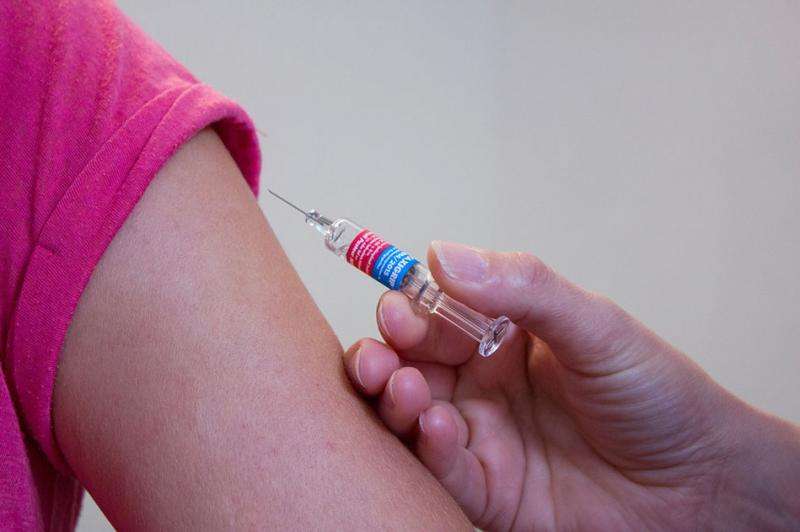Stepping closer to a universal flu vaccine

Researchers at McMaster University and two American universities have taken another step closer to developing a much more effective, "one-punch" universal flu vaccine.
Their latest findings, published online this week in the journal Proceedings of the National Academy of Science (PNAS), build upon their earlier discovery of a class of antibodies capable of neutralizing the most dangerous types of Influenza viruses.
These antibodies, according to the researchers, essentially "train" the immune system to recognize a portion of the virus that does not change from year-to-year and, in doing so, can pave the way toward a universal vaccine that needs to be given just once and could protect against all future strains of the flu, including mutated strains.
Seasonal flu vaccines work by generating antibodies that bind to the virus and prevent it from infecting cells. Universal flu vaccines do this as well, but go one step further by recruiting white blood cells to destroy infected cells, says Matthew Miller, the senior author of the study.
Miller and his colleagues have discovered that while certain antibodies work well together to recruit these helpful white blood cells, others block their recruitment – and where they bind on the virus makes all the difference.
Miller is an assistant professor of biochemistry and biomedical sciences at McMaster's Michael G. DeGroote School of Medicine, and he has been working with scientists at the Icahn School of Medicine at Mount Sinai, New York and the University of Chicago.
"Our findings show that just having antibodies isn't enough. You have to have antibodies that bind to very specific places on the virus," said Miller. "Now that we know the places where antibodies have to bind, we can modify our vaccines so that we generate those antibodies in higher numbers."
Flu is estimated to cause 250,000 to 500,000 deaths globally each year, according to the World Health Organization (WHO).
While flu shots remain the best way to protect against the virus, how well a flu vaccine works each year depends on the health and age of the person being vaccinated, the similarity between seasonal vaccine viruses and circulating viruses, and whether a live or inactivated vaccine was used, according to the Centers for Disease Control and Prevention (CDC).
A universal flu vaccine, such as the one proposed by the study's authors, could effectively prevent mismatches, since it would protect against all flu strains, and the occurrence of flu pandemics.
"Using this knowledge, what we can now do is specifically design our universal vaccine to generate the most desirable types of antibodies and avoid antibodies that block the functions that we want," said Miller. "In doing so, we can make sure that the vaccine will work in the most effective way possible."
Antibodies that recruit white blood cells are currently being studied as treatments for cancer and HIV. These new findings by Miller and colleagues are likely to improve treatments for those diseases as well.
More information: Paul E. Leon et al. Optimal activation of Fc-mediated effector functions by influenza virus hemagglutinin antibodies requires two points of contact, Proceedings of the National Academy of Sciences (2016). DOI: 10.1073/pnas.1613225113



















